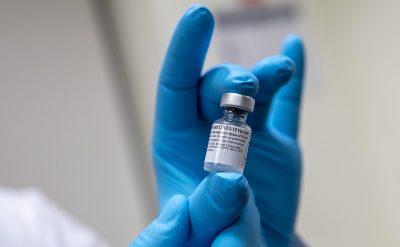
Boston University President Robert Brown announced BU will mandate COVID-19 vaccinations for students this Fall.
“Our goal is to move to a “new normal” in the fall that includes only minimal social distancing,” he wrote in an email to the BU community Friday, “where all our facilities are open, students can move freely between residences, and guests are welcome.”
Brown wrote the University will work to administer vaccines to those who have not received it by the start of classes in the Fall. A process will also be put in place to accommodate religious and medical exemptions.
Davidson Hamer, professor of global health and medicine and member of BU’s Medical Advisory Group, said the COVID-19 vaccine is effective for limiting transmissions and preventing hospitalizations.
“I think that the vaccine is one of the best weapons that we have right now,” he said, “to try and control the spread of this disease.”
Hamer added that to return to a populated and open campus in the Fall, the University needs a “high rate of coverage of the vaccine” once September arrives.
He noted potential difficulties for international students who might not receive a Food and Drug Administration approved vaccine over the summer.
Ashari Bilan-Cooper, a freshman in the College of Arts and Sciences, said she was “really pleased” to read Brown’s email announcing the vaccine mandate for students. However, she personally isn’t sure if there will be an available vaccine appointment in Massachusetts before she’s scheduled to return home to Singapore.
“I’ll either get it here,” she said, “or if it doesn’t line up with a flight plan to go back home, I’ll end up getting it in Singapore over the summer holidays before I return to campus.”
Residents aged 45 and older are currently eligible to receive the COVID-19 vaccine in Singapore. Bilan-Cooper said she estimates adolescents and young adults may be eligible by June or July.
She said she wished Brown’s letter was more explicit on how the University plans to vaccinate students — many of her friends most likely won’t have the option to get vaccinated this summer.
“I think the biggest problem with that,” she said, “is just maybe getting a vaccination that’s not accepted by the U.S. government as valid.”
Nathaniel Giallanza, a sophomore in the College of Communication and the Frederick S. Pardee School of Global Studies, said he’s “a little bothered” by the University’s decision because the vaccine was approved under an emergency use authorization.
An EUA is used to authorize medical products — such as a vaccine — to fight public health threats, including infectious diseases, by quickening the manufacturing and distribution process. It is issued when there’s no “adequate, approved and available alternatives,” according to section 564 of the Federal Food, Drug and Cosmetic Act.
In order to receive approval for an EUA, the COVID-19 vaccines had to meet the “rigorous scientific standards for safety, effectiveness, and manufacturing quality” of the FDA, according to the Centers for Disease Control and Prevention.
“I can’t help but not be a little suspicious on how quickly everything kind of went,” he said, “but I do find it a little bit alarming that the school is mandating this for students to be able to come back.”
Giallanza said he received the second dose of the Pfizer-BioNTech vaccine Saturday, adding he’s not opposed to the vaccine — especially for people with comorbidities — but understands those who might be hesitant to receive it.
COM junior Jillian Degrandt said she supports the decision considering the number of students on campus and public safety, but remains confused on what future mask guidelines will be.
“If everyone is vaccinated, why would we still need masks?” she said. “I think it really all just depends on what’s going on in the United States and world as a whole in the Fall, rather than just BU.”
Hamer said he urges everyone to continue to social distance and wear masks because there is still the threat of reintroduction of the virus via unvaccinated populations, such as children, and more variants of the disease.
He said all students who are eligible to get the vaccine should do so and adding that post-COVID-19 symptoms can range anywhere from “annoying” to “disabling.”
“We want to prevent that from happening,” Hamer said. “The higher levels of immunization, the less likely those kinds of complications are going to be.”
BU spokesperson Colin Riley said he’s hopeful the mandate will be effective in allowing the school to return to its traditional in-person format next semester.
“Let’s hope that this vaccination, across the country and around the world, continues,” Riley said. “And that, from that, you have the infections diminish and then die out.”





























































































































